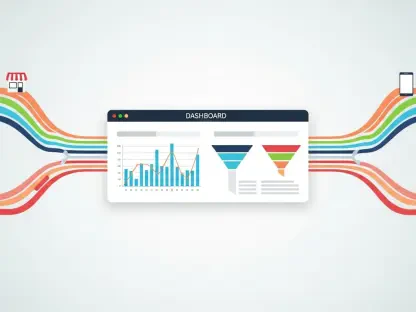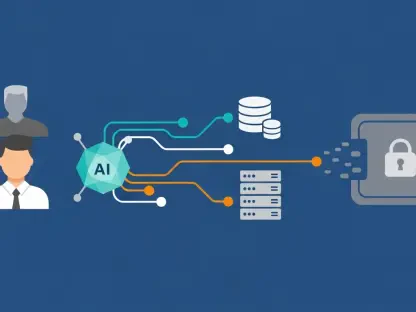In the bustling realm of cloud computing, where data-driven decisions rule, a significant shift is underway. At the heart of this transformation lies Google Cloud’s latest advancements to its BigLake architecture—a lakehouse that harmoniously blends data lake and warehouse functionalities. These updates are set to redefine how businesses interact with their data, propelling them into a new era of efficiency and AI-driven insights.
A Strategic Shift in Data Management
In an age where digital evolution is unrelenting, seamless data interaction emerges as a critical focal point for enterprises worldwide. Google Cloud’s new BigLake updates present a strategic shift that offers flexibility, performance enhancement, and simplifies complex data management tasks. The REST API Catalog integration into BigLake’s metastore exemplifies this transition, offering a managed metadata service that reduces redundancy and streamlines analytics. This cutting-edge feature highlights a broader industry trend where efficient data management is increasingly pivotal to technological success.
Why These Updates Matter
The enhancements to BigLake are not mere upgrades; they reflect the accelerating pace toward more intelligent data solutions. As AI technologies mature and data volumes soar, businesses demand tools that optimize performance without straining budgets. Google Cloud’s updates emerge amid growing market pressure for cost-effective and advanced data analytics solutions. The promise of integrated AI capabilities, alongside improved SQL analytical performance, positions BigLake as a formidable player in accommodating these rising demands and shaping business priorities from cost reduction to operational agility.
Exploring BigLake’s New Features
The prominence of BigLake’s updates is underscored by the introduction of the REST API Catalog and enhancements in services like BigQuery and Apache Spark. The REST API integration marks a pivotal moment in metadata management, enabling developers to bypass traditional compute engines and optimize workflows. BigQuery’s advanced runtime and CMETA improvements further exemplify attention to detail, promising significant speed and efficiency enhancements for complex SQL analytics. Moreover, Google Cloud’s Lightning Engine for Apache Spark, with impressive performance boosts, showcases the company’s proactive stance in fostering competitive technology and addressing industry needs.
Insights and Expert Opinions
Experts in the field have weighed in on the strategic implications of Google Cloud’s updates. Michael Ni from Constellation Research suggests the updates herald notable cost savings, particularly through innovations such as the REST API Catalog. Sanjeev Mohan concurs, emphasizing the economic benefits of flexible analytics integration. Hyoun Park highlights the critical nature of performance enhancements for AI and data analytics, underscoring the strategic impact of Google’s integration of AI tools within its offerings. This chorus of expert insights paints a vivid picture of transformative potential and the long-term benefits these updates can provide.
Practical Applications for Businesses
To leverage these advancements, enterprises can adopt several strategies to integrate Google Cloud’s enhancements. By incorporating the REST API Catalog, businesses can streamline their metadata workflows and reduce reliance on traditional analytics engines. Implementing BigQuery’s SQL improvement features offers immediate performance boosts with minimal effort, while adopting the Lightning Engine for Apache Spark promises substantial speed gains. Enterprises looking to enhance data management efficiency can realize significant cost reductions by aligning these features with their operational priorities, thereby transforming the updates into strategic assets rather than mere technological upgrades.
In conclusion, Google Cloud’s updates to its BigLake-driven data lakehouse represent a monumental leap forward in the landscape of data management. Through streamlined metadata solutions and heightened analytics capabilities, Google aptly addressed core challenges facing modern enterprises. These advancements not only positioned the company competitively but also laid a forward-thinking foundation for businesses eager to harness AI-driven insights. As the digital landscape continues to evolve, Google Cloud’s offerings prove instrumental in guiding enterprises toward more efficient and intelligent data use, encouraging a seamless transition into the future of technology.









